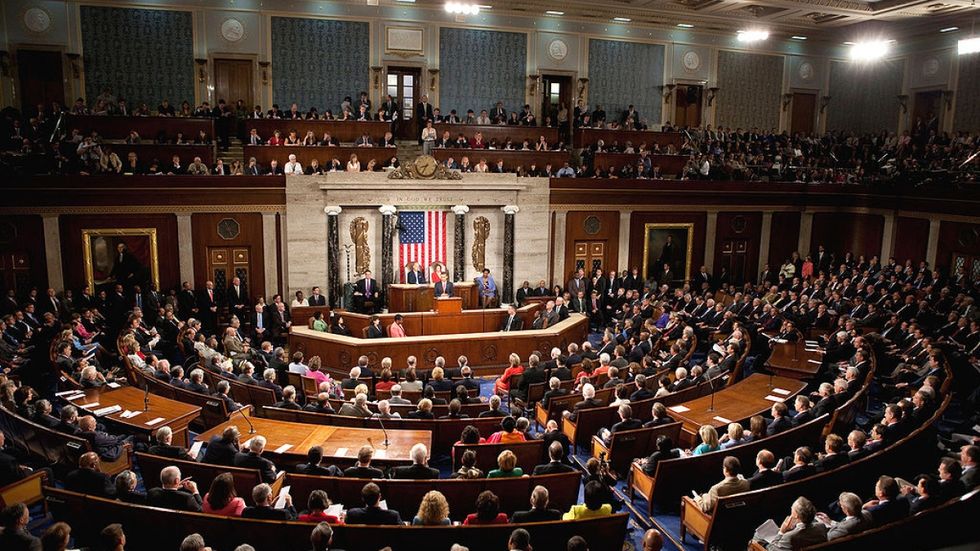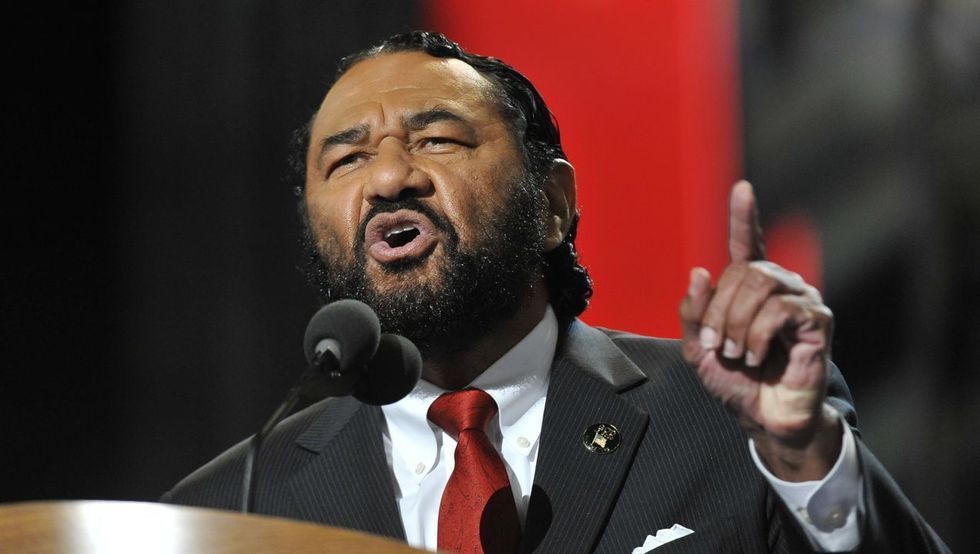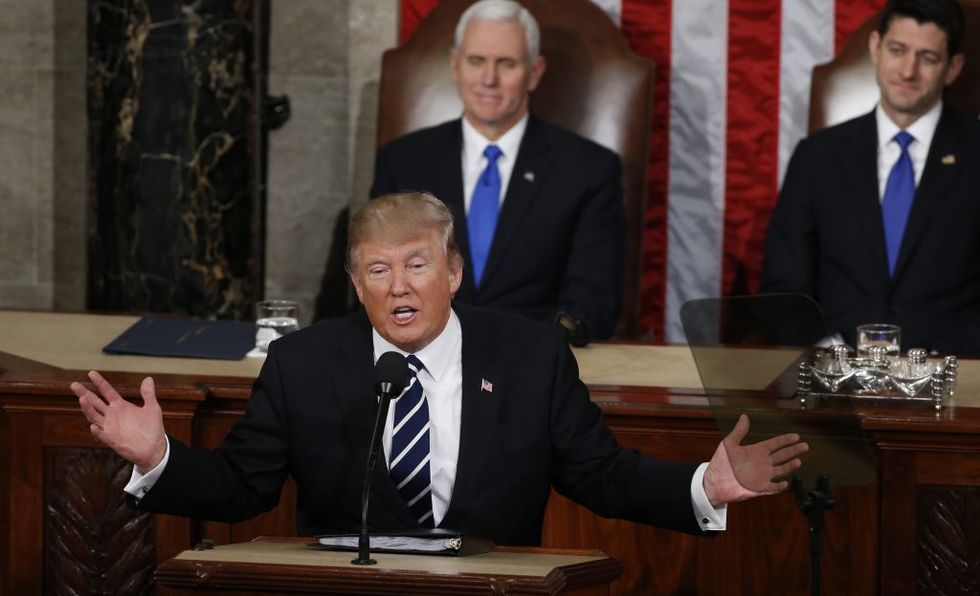House Representative Al Green (D-TX) became the first member of Congress to officially read articles of impeachment against President Donald Trump on the House floor earlier this month, with the president’s Twitter account at the center of Trump’s alleged “crimes and misdemeanors.”
Green’s proposal is going nowhere, given that Republicans control the House and Senate and even Democrats have been quick to ridicule the idea that Trump should be impeached anytime soon. But in regards to impeachment itself, what is impeachment? What can the president be impeached for? And what does all this mean for Trump?
The term “impeachment” itself dates back centuries in England, where it served as a word for prosecuting great lords and high officials who were beyond the reach of the commoner's legal court systems. In an American Constitutional context, the founding fathers established the concept of impeachment simply as a way for Congress to remove a president from his/her position if and when necessary
To go over the process of impeachment, the House of Representatives first has the power to impeach the president. A simple majority is necessary for an article of impeachment to be approved (each article lays out a charge against the president). It should be noted that the term "impeachment" is equivalent to the commoner's legal term of "charged."
When a sitting president is impeached, he remains in his position and the accusation(s) that lay against him are yet to be proven or disproven, contrary to the common misconception that when a president is impeached, this means he is ousted from this office.
Next, the process shifts to the Senate, where a trial will be held. The Senate serves as a court in this scenario. In this trial, the House of Representatives acts as a prosecutor, designating certain impeachment managers to argue their side in the Senate. The president’s lawyers are the defense team; the president does not have to appear in person and historically has not. The chief justice of the Supreme Court presides and is responsible for making procedural rulings during the trial. However, the Senate can vote to overrule his decisions.
Finally, and crucially, it takes a two-thirds vote from the Senate to actually convict a president on any count. Conviction on any count would then remove the president from office and put the vice president in power.
So now we come to the big question: What can the President of the United States actually be impeached for? The Constitution only specifies two specific crimes — treason and bribery — that could justify impeachment and removal from office. In addition to this, it mentions a vaguer, broader category of “other high crimes and misdemeanors.”
With only a minimal skeleton to work with, the last category had been the subject of much controversy throughout our nation's history. In an analytical stand-point, just how much this last category entails can be seen as whatever the House at the time see as behavior unfitting of the President.
Technically speaking, if a majority of the House of Representatives wants to vote to impeach the president, it doesn't seem that anyone can stop it from doing so — the Constitution clearly states that it has "the sole Power of Impeachment."
In the case of Trump's chances of being impeached, it's crucial to note, Johnson, Nixon and Clinton — the presidents who were either impeached or who, in Nixon’s case, resigned to preempt a coming impeachment — all faced Congresses controlled by their political enemies, and who therefore wanted them out of power. Trump, of course, does not. And so long as Republicans control majorities in both chambers of Congress, it’s difficult to imagine any impeachment of Trump.
The president is still quite popular among GOP voters, and party interests still need him to appoint conservative judges and sign conservative bills. So Republicans in Congress have a strong incentive to give him the benefit of the doubt on any scandal or controversy in which he has some sort of plausible deniability (and perhaps even some in which he may not).
Furthermore, though many Republican elites would probably privately prefer having Mike Pence as president, Trump retains significant support among GOP voters and the party’s base. So actually ousting him would mean tearing the party apart. Any actions to oust a member of their own party from the presidency would appear as a lack of union to voters, watering down the nation's trust in the GOP. That’s likely why, to this point, most of the congressional GOP has seemed happy to look the other way on Trump’s scandals or ethical problems.
Even in the event that the Democrats retake a majority in the Senate and House, it seems highly unlikely that a 2/3 majority will be achieved. All in all, given the process itself and the barrier needed to be crossed in order to achieve an ousting, the impeachment of Donald Trump seems highly unlikely, at least in the near future.












































